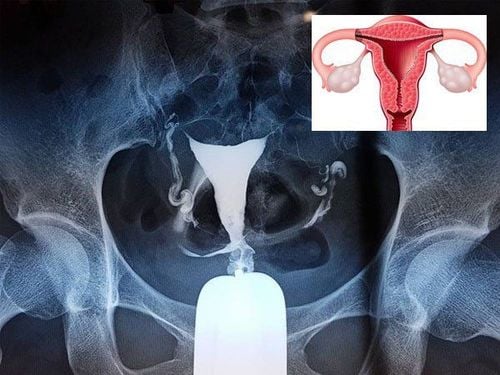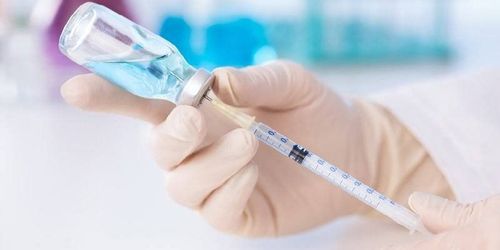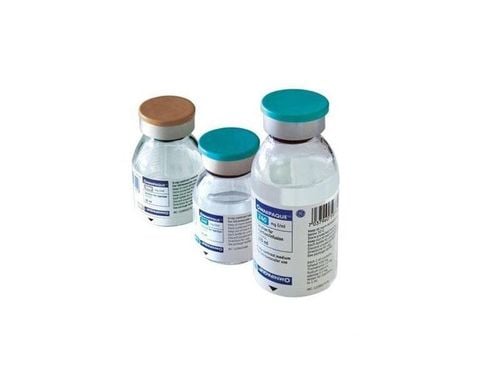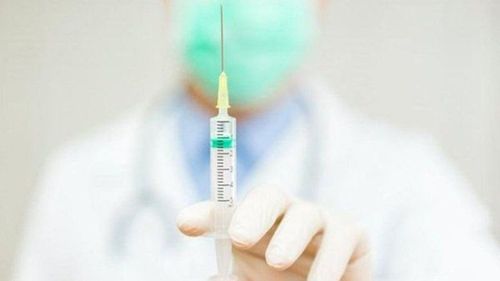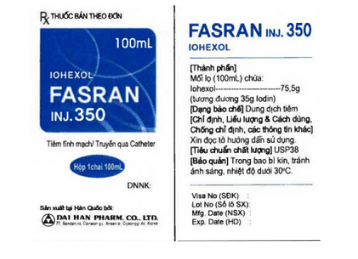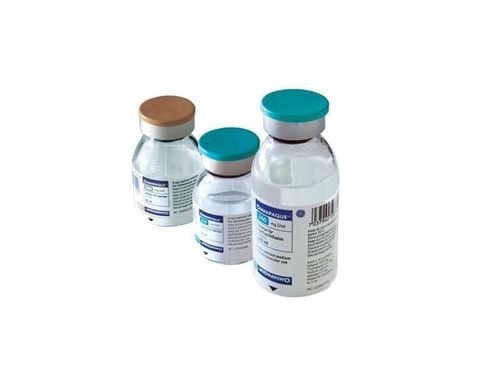This is an automatically translated article.
The article was written by Specialist Doctor I Vo Cong Hien - Radiologist, Department of Diagnostic Imaging - Vinmec Nha Trang International General Hospital.Iodine contrast agents are substances used to enhance the contrast level of structures or body fluids during diagnostic imaging.
1. Overview of the concept and classification of Iodine-containing contrast agents
Contrast contains oil soluble iodine and contrast medium contains water soluble iodine. In which, contrast dye containing water-soluble iodine low osmotic pressure or equivalent plasma osmotic pressure is the most commonly used contrast agent group today to minimize adverse effects (ADR).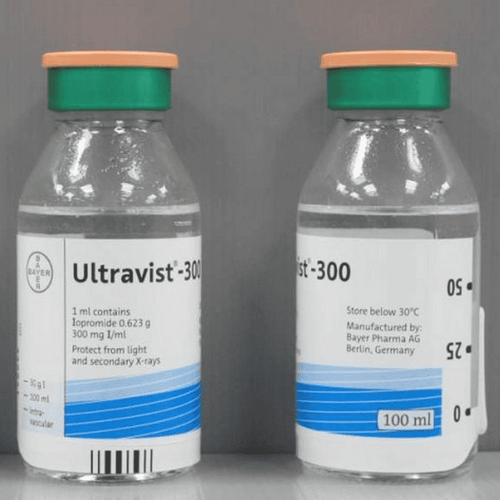
Thuốc cản quang chứa Iod áp lực thẩm thấu thấp bệnh viện Vinmec Nha Trang đang sử dụng
2. Common Adverse Effects (ADRs) of Iodine Contrast Contrasts
Although iodinated contrast agents are considered relatively safe, allergic-like reactions have occurred in a relatively large number of patients. Rapid response (within 1 hour of dosing) and slow response occurring from 1 hour to 1 week after dosing range from mild, moderate and severe, but severe effects are very rare.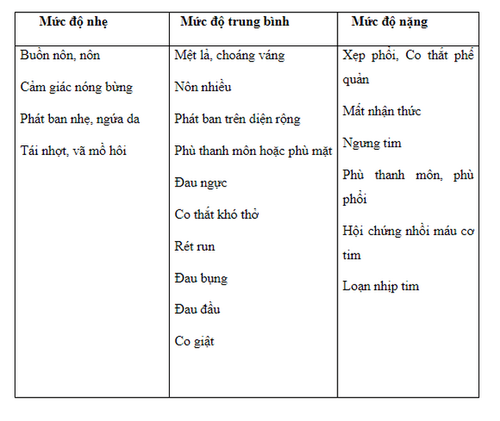
3. Risk factors
Risk factors leading to a higher incidence of ADR with iodinated contrast in some patient populations with the following characteristics:
Prior history of allergy to iodinated contrast . 21-60% risk of re-reaction with repeated administration of another drug or drug in the iodinated contrast medium class. Allergic history: Asthma is the most important predisposing factor for severe reactions. There is no evidence that a seafood allergy affects the response. Cardiovascular disease (especially heart failure) Dehydration Hematologic diseases such as sickle cell anemia, erythrocytosis, myeloma Renal disease, taking nephrotoxic drugs Age: children, elderly Patients Using beta-blockers (atenolol, metoprosol, propranolol...), interleukin-2, aspirin, NSAID, Metformin need to stop using the drug completely before conducting contrast injection. Anxiety, depression
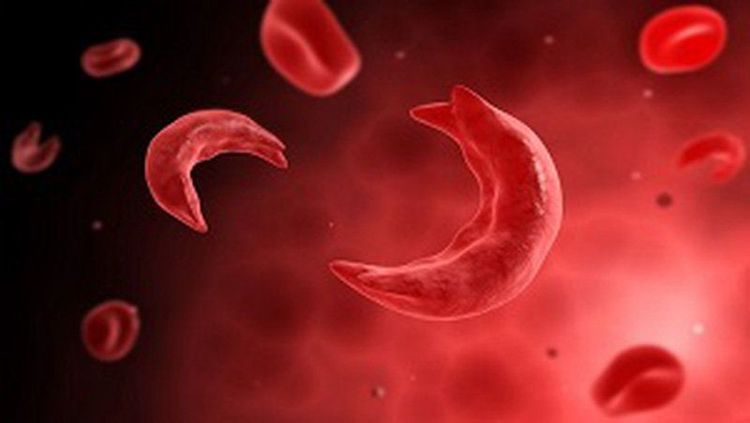
Dùng thuốc cản quang có Iod có thể gây ra tình trạng hồng cầu liềm ở người bệnh
4. Prophylaxis of Common Adverse Reactions (ADRs) of Iodine Contrast Contrasts
Identify risk factors that can lead to severe ADR.
Minimize risk: use low osmolarity water-soluble Iodine Contrast or equivalent to plasma osmolality.
Use prophylactic drugs for high-risk subjects.
It is optimal to use prophylactic drugs for high-risk subjects even when using water-soluble iodinated contrast media with low osmotic pressure or equivalent plasma osmolality.
Prophylactic drugs: Corticosteroids, Antihistamines.
Prophylactic treatment can reduce the risk of anaphylaxis with iodinated contrast media.
Vinmec International General Hospital is one of the hospitals that not only ensures professional quality with a team of leading medical doctors, modern equipment and technology, but also stands out for its examination and consultation services. comprehensive and professional medical consultation and treatment; civilized, polite, safe and sterile medical examination and treatment space.
Customers can go directly to Vinmec Nha Trang to visit or contact hotline 0258 3900 168 for support.




